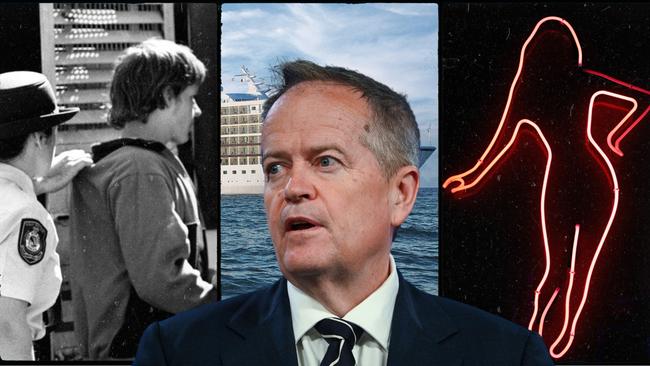
The Australian reported that Wayne Wilmot, a recidivist sex offender with psychopathic traits and a mild intellectual disability, was on track to receive such a package. NDIS Minister Bill Shorten responded angrily to the news.
“I don’t want him (Wilmot) on the NDIS,” he said. “You’ll have to ask the state authorities why they’re releasing him … The NDIS was not created to be a dumping ground for the state correctional system for people they don’t know how to cope with in society.”
Rapists on the NDIS are just the latest bitter pill for Shorten to swallow as he comes to terms with what the scheme has become. The key architect of the NDIS, Shorten recently introduced a bill into parliament based on last year’s review that aims to get the scheme back on track. But it’s not clear what the legislation will actually achieve.
When the NDIS was designed it was originally forecast to cost $13.6bn, supporting about 460,000 participants with serious and lifelong disabilities. Today the scheme costs $42bn and is the fastest-growing expenditure program on the government’s books – more expensive than Medicare and the Age Pension.
In a presentation at the Centre for Independent Studies last week, Australian Financial Review economics editor John Kehoe argued the NDIS budget had blown out for two key reasons. The first is the inflated cost of packages.
The average package plan at the end of last month for active participants was $53,100 or $348,100 for those in supported independent living. And the NDIS’s own data shows participants require more funding over time, with packages increasing by an average of 38 per cent over five years.

The second reason for the budget blowout is that an excessive number of participants – most notably children who aren’t actually disabled but who have “developmental delays” – are being included as part of the scheme.
But not everyone who is disabled is receiving adequate care or is even able to access the NDIS at all. A veteran manager from the disability sector who wished to remain anonymous told me NDIS plan managers often had a limited understanding of disability and were unable to make judicious choices when it came to support, while adults who had intellectual disabilities who found it hard to navigate the system could miss out on getting essential care.
Just like able-bodied people, people with disabilities vary greatly in their capacity for self-advocacy. And it appears a particular subset of adults with physical (but not intellectual) disabilities has been successful in representing its own interests. Similarly, advocacy groups and service providers catering to this demographic also have been effective in furthering their own agenda.
Advising NDIS participants to connect sex work to their plan goals, Touching Base encourages sex workers to provide invoices with line items such as “innovative community participation”.
On Reddit, on the r/NDIS forum, participants in the scheme share advice with each other on how to access such services. “Just self-manage your plan and pay for the sex worker that way. You dont (sic) need to tell anyone, the NDIS never check,” writes one user. “They may bill one hour of service as several hours of support work,” writes another.
“My plan manager has paid multiple claims as long as I provide an invoice to document hours and price. As the cost is well and truly above the hourly rate of most supports, they asked me to break it down by hourly rate e.g. $1500 session would show as 15 hours on a Sunday @ $100 per hour.”
But it’s not just sex work that is being subsidised by the government – it’s international travel. On the Care2Cruise website, which offers cruises for NDIS participants, one can select from luxury cruises to New Zealand, New Guinea, New Caledonia and Fiji. While it is not unreasonable for respite weekenders for families and individuals to be subsidised by the NDIS, luxury cruises to international destinations simply verge on decadence.
Shorten has said he is committed to reforming the NDIS and getting it back on track. But if he truly understood the power of incentives he would not have designed a system without spending guardrails in the first place. He also would have been wary about creating a centralised system far removed from frontline services, creating expensive layers of bureaucracy for little community benefit.
The NDIS has become a monetary monster, devouring the budget, adding to inflation, while failing to meet the needs of many in the community. It is unlikely that the same person who designed it to be this way will be able to fix it.
Claire Lehmann is founding editor of online magazine Quillette.
More Coverage
 The Australian government’s own actuary has predicted the scheme will cost $125bn by 2034 and will end up servicing more than one million participants.
The Australian government’s own actuary has predicted the scheme will cost $125bn by 2034 and will end up servicing more than one million participants.






Last week it was reported that sex offenders were receiving funding for support from the National Disability Insurance Scheme, sometimes with packages worth more than a million dollars.